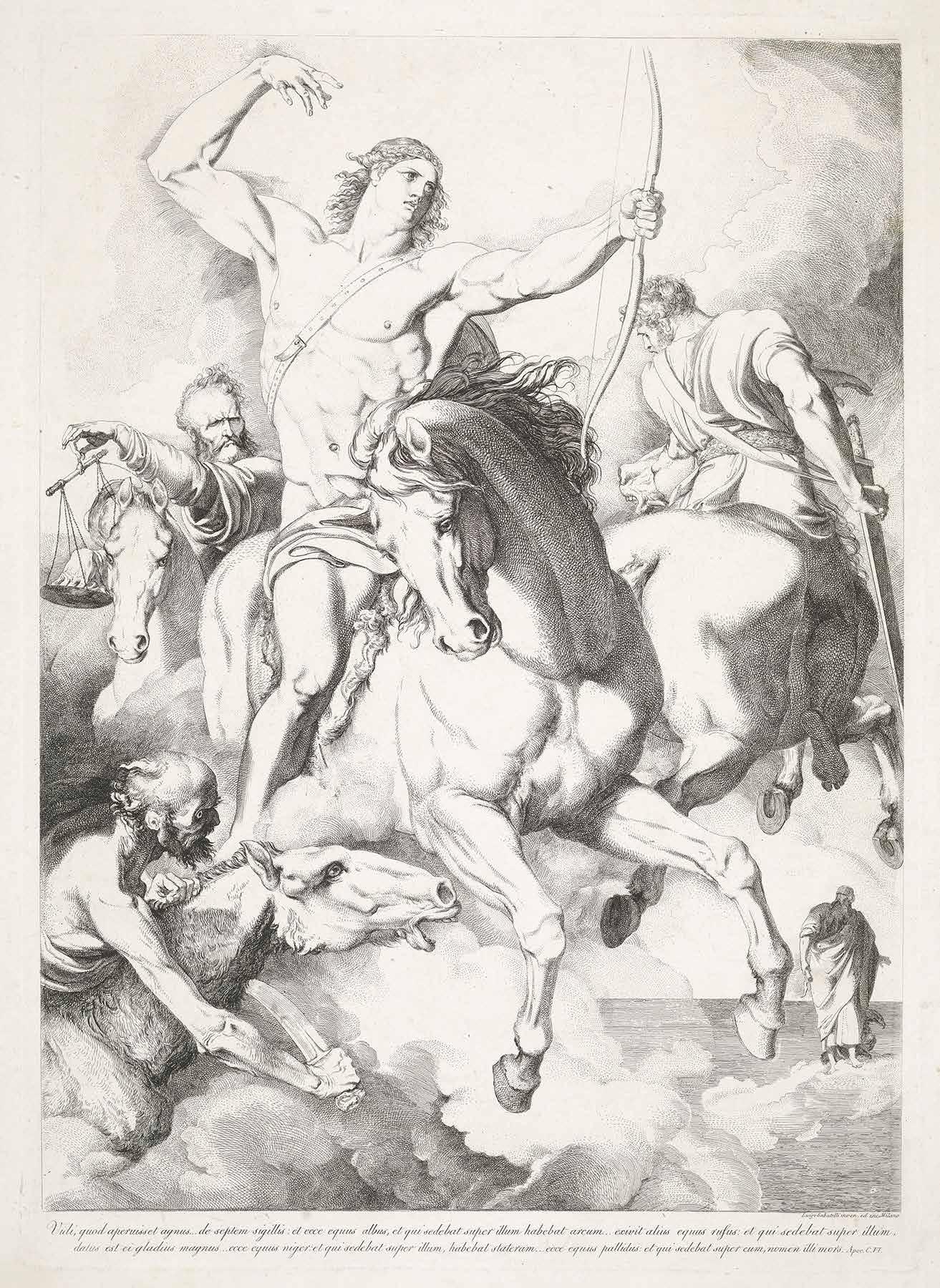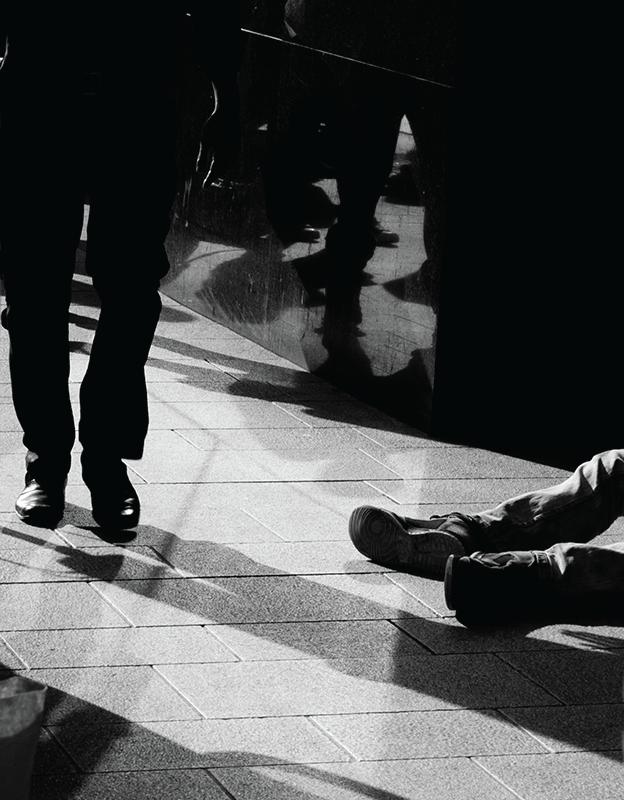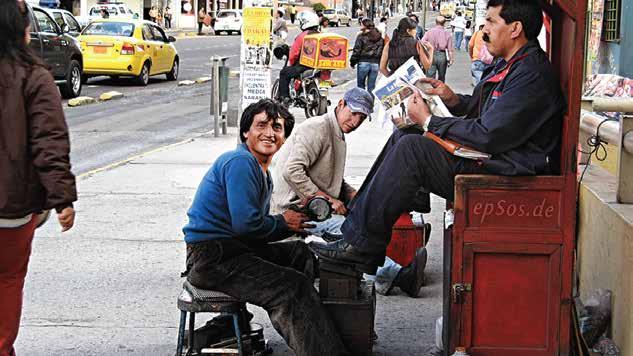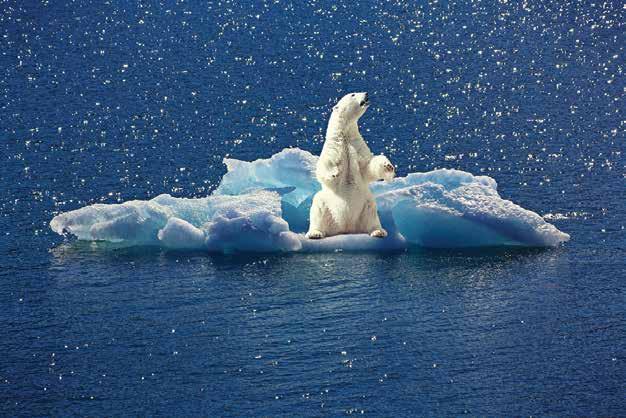
9 minute read
Four Horseman Of The Global Capitalism
Four Horsemen of The Global Capitalism
by Hadje C. Sadje, Belgium
oday, people face a grave political-economic crisis. And yet, many people remain indifferent in the face of global problems. They avoid political conversation. For them, it is so stressful to talk about politics, specifically for millennials (2016). This is too much and somewhat no fun talking. Everything is so depoliticised. Of course, the politicisation of everything is not good. However, engaging in political-economic responsibility is part of corporate citizenship. Unfortunately, these people preferred to discuss their philosophy of narcissism, individual identity, fashion trends, food trends, travel trends, new movies, new video games, new gadgets, new cars, sport news, drugs, and pornography. Often, these people focusing more on personal achievements at the expense of social, environmental, and moral considerations. There is nothing better for them than to eat, drink, and enjoy their work. Others becoming more and more cynical. There are the ones who cannot seem to find hope everywhere and accept their devastating fate. For example, according to the Pew Research Centre (2016), “...American millennials become less confident about the nation’s future”. It seems that these American millennials have whinged about their manifest destiny.
Perhaps, after Soleimani killing and the tension escalates between America and Iran, it becomes more apparent. Ironically, however, the only thing that matters they enjoyed immensely is the present moment. And unfortunately, these people have romanticised their tragic and desperate life. This resonates with an American sociologist C. Wright Mills’ view (1959). Mills argued, “...people felt that their private lives are a series of traps”. People are forced to accept their unacceptable life situations and then eventually they enjoy it. For Mills, these people unable to see the bigger picture. They have failed to see that global issues are connected to local issues---biography and history. Failed to realise that, according to Mills, “They cannot cope with their personal troubles in such ways as to control the structural transformations that usually lie behind them”. So, people have to simply accept every injustice as an avoidable part of life.
One of the best examples, for instance, is the mass protest around the world. In November 11. 2019, an interesting article entitled, “Do today’s global protests have anything in common?” published in BBC News website that listed the common themes that connect (intersections) the global protests around the world. Accordingly, there are four themes that bind these protesters, namely, inequality, corruption, political freedoms, climate change.
In this article, however, I preferred to use the biblical term “four horsemen” to describe these four themes. Although it has diverse interpretations, in the Christian Scripture, the “four horsemen” of the Apocalypse/Revelation represents symbolically the four catastrophic events that will take place before the second coming of Jesus Christ (see Revelation 6: 1-8). Using this biblical term, I intended to give emphasis on the devastating effects of these four themes or horsemen. Aside from this, I believe that every generation has had its own challenges----four horsemen. Presently, this generation faces four interconnected global challenges.
Let’s take a look at four horsemen of our time: first horseman, inequality; second horseman, corruption; third horseman, suppression of political freedoms; and fourth horseman, climate change. First horseman, inequality. In the statistical (including how these technocrats measure it) debates about trends of global inequality, many social scientists argue that globalisation has tended to create a more equal world (UN Sustainable Development Goals 2019; World Economic Forum 2015; Hicks 2007). Contrary, some researches contested it (Hickel 2017). with the growing concentration of global wealth among a privileged few, it is not surprising to see the widening gap between rich and poor (Partington 2019; Global Inequality Report 2018; Milanovic 2016). Actually, according to Jason Hickel (2017), it is a misleading representation of data. He argues that “...it fails to acknowledge rising absolute inequality, and it ignores divergence between geopolitical regions...From this perspective, global inequality has tripled since 1960”. Likewise, the BBC article (2019) supported it by citing the Organisation for Economic Co-operation and Development (OECD) report.

This photo is an example of the social divide and inequality. Pictured is a servant trying to get out of poverty, by providing the service of cleaning and polishing shoes, with a smile.. Photo by epSos.de.

The second horseman is corruption. Despite countries established independent and dedicated institutions in the fight against it, corruption is still rife around the world (Economist 2018). In fact, the BCC article shows that “...government corruption are at the heart of several of the protests, and are closely linked to the issue of inequality”. Pratiba Patil famously stated that “Corruption is the enemy of development, and of good governance”. It destroys people, justice, and legitimacy of the state. It is like cancer growing inside out. No one can deny that people are protesting around the globe against corruption. Although it is a first-world problem too, however, corruption remains a major challenge among non-Western nations (Corruption Perceptions Index 2017).
Another closely linked to the issue of inequality and corruption, the third horseman is the suppression of political freedoms. Despite the International Human Rights Law being one of the greatest moral achievements of modern humans, the world witnessed a shocking rollback of human rights violations over the past several decades (Amnesty International 2017). For example, Yemen war crimes committed by Saudi-led coalition, Israel war crimes in Gaza and West Bank, the catastrophic war in Syria, the slow-burning genocide of Myanmar’s Rohingya, China's mass detention of Uighurs, to name a few. Aside from these, the terrifying rise of authoritarian populism and suppression of political freedoms precede the erosion of the most basic human rights, including civil, political, social, and economic rights. Accordingly, this is one of the root causes in many mass protests worldwide, especially in Hong Kongers, Catalan, and Bolivia protesters.

Lastly, the fourth horseman is climate change. In January 8, 2020, Emily Holden wrote an article entitled, “How the oil industry has spent billions to control the climate change conversation”. Despite what research shows, unfortunately, many oil companies show doubt in global warming and climate change. As a matter of fact, these oil companies spent billions to manipulate the debates about global warming and climate change. According to Holden, “...America’s oil companies are trying to rebrand themselves as part of the solution to the climate crisis, launching a campaign to counter top Democrats’ proposals to rapidly cut pollution from the power plants and cars that run on the industry’s petroleum and natural gas”. With the fact that global warming and climate change create multidimensional problems, it is frustrating to see these oil companies can spend billions at the expense of human lives. If these oil companies continue, their greed for ever-greater profit leads humanity into mass destruction.

As the world has entered more fully into 21st century global challenges, I believe that we have been experiencing both outcomes simultaneously. The evidence that we live in a very perilous time. The global protest coupled with the four horsemen--- inequality, corruption, suppression of political freedoms, and climate change ---- reveal an interrelated global problems that no one could have imagined. At the same time, it alerts us to an unprecedented scale of shared vulnerability and responsibility. Though, this is not an easy task. According to C. Wright Mills (2000):
“The more we understand what is happening in the world, the more frustrated we often become, for our knowledge leads to feelings of powerlessness. We feel that we are living in a world in which the citizen has become a mere spectator or a forced actor, and that our personal experience is politically useless and our political will a minor illusion.
Very often, the fear of total permanent war paralyses the kind of morally oriented politics, which might engage our interests and our passions. We sense the cultural mediocrity around us-and in us-and we know that ours is a time when, within and between all the nations of the world, the levels of public sensibilities have sunk below sight; atrocity on a mass scale has become impersonal and official; moral indignation as a public fact has become extinct or made trivial” (184-185).

In the age of hopelessness, however, Walter Brueggemann (2001) insisted that Christian churches must reimagine its prophetic vocation. First of all, the primary task of the Christian prophetic ministry, as Brueggemann describes, “...is to nurture, nourish, and evoke a consciousness and perception alternative to the consciousness and perception of the dominant culture around us”. For him, the Christian prophetic ministry provides an antidote to an increasingly cynical age. Like Mills’ sociological imagination, prophetic imagination provided the “...individual to understand one’s own experience and gauge one’s own fate only by locating oneself with his or her own period in time”. In short, prophetic imagination invites us to think about social phenomena in a certain way. Silence is not an option. It helps us to see the intersection between local and global issues. Most importantly, it enables us to unmask privilege, social convention, power-relations, inequality, injustices, and structural evil. However if there is an inability to grasp these intersections, humanity will witness its own immediate destruction.

Another important task is the call for Christian unity and protest to combat injustices worldwide. The global Christian communities must choose to be on the side of less privileged, poor, and exploited communities. As we have seen that worldwide mass protest is the symptom of global inequality and the unjust economic and political system, the Christian communities must join the global mass protest. As political and economic issues are inseparable from ethical or moral issues, neutrality is no longer an option, the Christians must join in collective action. We must express our solidarity with the protesters that causes serious disruption, especially the escalation between the United States and Iran. We must influence policymaking. Take part in a series of mass protests and political events. We must learn how to organise and mobilise our own faith community. As Martin Luther King, Jr. once said, “Those who love peace must learn to organise as effectively as those who love war”. We cannot be silent on the devastating consequences of war before it’s too late. A political activist and Holocaust survival, Elie Wiesel reminded us:
“The opposite of love is not hate, it's indifference. The opposite of art is not ugliness, it's indifference. The opposite of faith is not heresy, it's indifference. And the opposite of life is not death, it's indifference.”








